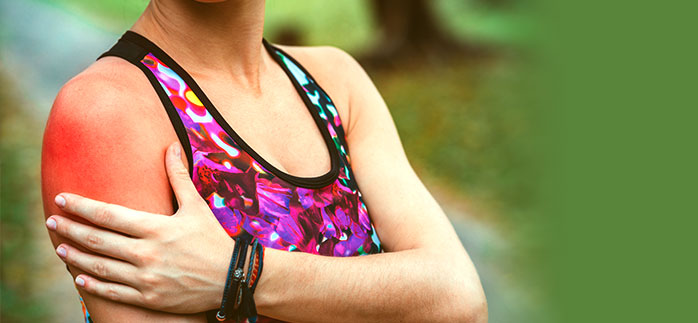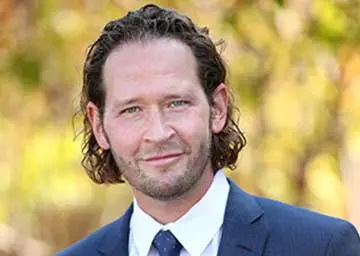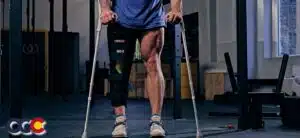If recurrent shoulder pain is interfering with your daily life, it may not mean that you need a Shoulder Replacement but you may benefit from being seen by an orthopedic shoulder specialist. Because shoulder pain can have multiple causes, your physician should include a complete medical and personal history in evaluating your shoulder concerns.
Causes
Shoulder pain has many causes such as contact occurring during impact sports like football or hockey, overuse or repetitive motion such as in baseball, and arthritis due to wear and tear or age.
While some pain can be addressed with non-surgical intervention such as rest, ice and anti-inflammatory medications, other causes require surgical treatment such as shoulder replacement. Complex fractures, muscle and tendon tears that cannot be repaired and severe forms of arthritis may require shoulder replacement to give you the best chance at improved long-term comfort, mobility and function.
Types of Shoulder Replacement surgery
Many people are surprised to learn that there is more than one type of shoulder replacement. The type of replacement your specialist recommends will depend on the type of injury or reason for your shoulder pain. The options include a partial shoulder replacement as well as a total or reverse total shoulder replacement.
Partial shoulder replacement focuses on the upper arm bone (known as the humerus) rather than the actual shoulder socket. In this procedure, the ball portion of the upper arm bone is removed and replaced with metal. This type of shoulder replacement is recommended when there is major damage to the head or ball of the humerus bone while the rest of the shoulder is healthy and intact.
Total shoulder replacement is most often used to address arthritis in the shoulder and typically replaces both the damaged ball (the head of the humerus bone) and socket with metal and plastic. Total shoulder replacement patients can experience significant improvements in pain and movement following successful surgery and rehabilitation.
Reverse shoulder replacement is an option for shoulder pain resulting from arthritis in addition to significant damage to the shoulder tendons, namely the rotator cuff. The “reverse” of a conventional total shoulder replacement, the ball and socket position are actually switched – the prosthetic ball is fixed to the socket, and the socket “cup” is fixed to the upper end of the humerus in place of the ball. This procedure relies on the deltoid muscle, instead of the rotator cuff tendons, to move the shoulder and arm.
Recovery from Shoulder Replacement surgery
What to expect
Patients should expect a complete recovery to take approximately six months. That timeframe can vary, however, depending on factors such as the type of surgery, age, physical fitness prior to surgery, the severity of the injury, and – very importantly – your recovery and rehabilitation protocol.
In my practice, I typically recommend patients begin physical therapy as soon as one week after surgery starting with certain movements that begin to restore flexibility but also allow for healing. As time passes, strength work and additional flexibility exercises are introduced. All physical therapy is led by a highly trained physical therapist under the direction of your orthopedist.
Post-op Expectations
Plenty of data exists on the benefits of shoulder replacement surgery and the majority of patients have excellent outcomes. Studies report that 75-90% of patients return to their exercise or activity of choice with swimming, fishing, golf, and tennis players being most likely to return to their sport.
If you are tired of chronic shoulder pain and it is impacting your daily activities, schedule a consultation with my office or another orthopedic specialist to find the right treatment plan for you.
[av_one_full first min_height=” vertical_alignment=” space=” custom_margin=” margin=’0px’ padding=’0px’ border=” border_color=” radius=’0px’ background_color=” src=” background_position=’top left’ background_repeat=’no-repeat’ animation=” mobile_breaking=” mobile_display=” av_uid=’av-k79z7i’]
[av_heading heading=’Shoulder Replacement Specialists’ tag=’h3′ style=” size=” subheading_active=” subheading_size=’15’ padding=’10’ color=” custom_font=” av-medium-font-size-title=” av-small-font-size-title=” av-mini-font-size-title=” av-medium-font-size=” av-small-font-size=” av-mini-font-size=” custom_class=” admin_preview_bg=” av_uid=’av-jhpmhq’][/av_heading]
[/av_one_full]
[av_one_third first min_height=” vertical_alignment=” space=” custom_margin=” margin=’0px’ padding=’0px’ border=” border_color=” radius=’0px’ background_color=” src=” background_position=’top left’ background_repeat=’no-repeat’ animation=” mobile_breaking=” mobile_display=” av_uid=’av-hpc0um’]
[av_image src=’https://coloradoorthopedicnews.com/wp-content/uploads/2013/01/ferrari_feature1.png’ attachment=’789′ attachment_size=’full’ align=’center’ styling=’no-styling’ hover=” link=” target=” caption=” font_size=” appearance=” overlay_opacity=’0.4′ overlay_color=’#000000′ overlay_text_color=’#ffffff’ animation=’no-animation’ custom_class=” admin_preview_bg=” av_uid=’av-fh1pxa’][/av_image]
Dr. James Ferrari
[av_button label=’Meet Dr. Ferrari’ link=’post,587′ link_target=” size=’small’ position=’center’ icon_select=’yes’ icon=’ue80a’ font=’entypo-fontello’ color=’theme-color’ custom_bg=’#444444′ custom_font=’#ffffff’ custom_class=” admin_preview_bg=” av_uid=’av-el7o7i’]
[/av_one_third]
[av_one_third min_height=” vertical_alignment=” space=” custom_margin=” margin=’0px’ padding=’0px’ border=” border_color=” radius=’0px’ background_color=” src=” background_position=’top left’ background_repeat=’no-repeat’ animation=” mobile_breaking=” mobile_display=” av_uid=’av-c2oa8u’]
[av_image src=’https://coloradoorthopedicnews.com/wp-content/uploads/2013/01/motz_feature1.png’ attachment=’795′ attachment_size=’full’ align=’center’ styling=’no-styling’ hover=” link=” target=” caption=” font_size=” appearance=” overlay_opacity=’0.4′ overlay_color=’#000000′ overlay_text_color=’#ffffff’ animation=’no-animation’ custom_class=” admin_preview_bg=” av_uid=’av-bbnf3i’][/av_image]
Dr. Andy Motz
[av_button label=’Meet Dr. A Motz’ link=’post,601′ link_target=” size=’small’ position=’center’ icon_select=’yes’ icon=’ue80a’ font=’entypo-fontello’ color=’theme-color’ custom_bg=’#444444′ custom_font=’#ffffff’ custom_class=” admin_preview_bg=” av_uid=’av-8wgwzi’]
[/av_one_third]
[av_one_third min_height=” vertical_alignment=” space=” custom_margin=” margin=’0px’ padding=’0px’ border=” border_color=” radius=’0px’ background_color=” src=” background_position=’top left’ background_repeat=’no-repeat’ animation=” mobile_breaking=” mobile_display=” av_uid=’av-7imai6′]
[av_image src=’https://coloradoorthopedicnews.com/wp-content/uploads/2013/01/papillion_feature1.png’ attachment=’797′ attachment_size=’full’ align=’center’ styling=’no-styling’ hover=” link=” target=” caption=” font_size=” appearance=” overlay_opacity=’0.4′ overlay_color=’#000000′ overlay_text_color=’#ffffff’ animation=’no-animation’ custom_class=” admin_preview_bg=” av_uid=’av-5zdozy’][/av_image]
Dr. John Papilion
[av_button label=’Meet Dr. Papilion’ link=’post,605′ link_target=” size=’small’ position=’center’ icon_select=’yes’ icon=’ue80a’ font=’entypo-fontello’ color=’theme-color’ custom_bg=’#444444′ custom_font=’#ffffff’ custom_class=” admin_preview_bg=” av_uid=’av-3kgme6′]
[/av_one_third]
[av_hr class=’invisible’ height=’25’ shadow=’no-shadow’ position=’center’ custom_border=’av-border-thin’ custom_width=’50px’ custom_border_color=” custom_margin_top=’30px’ custom_margin_bottom=’30px’ icon_select=’yes’ custom_icon_color=” icon=’ue808′ font=’entypo-fontello’ custom_class=” admin_preview_bg=” av_uid=’av-2vnhm6′]
















